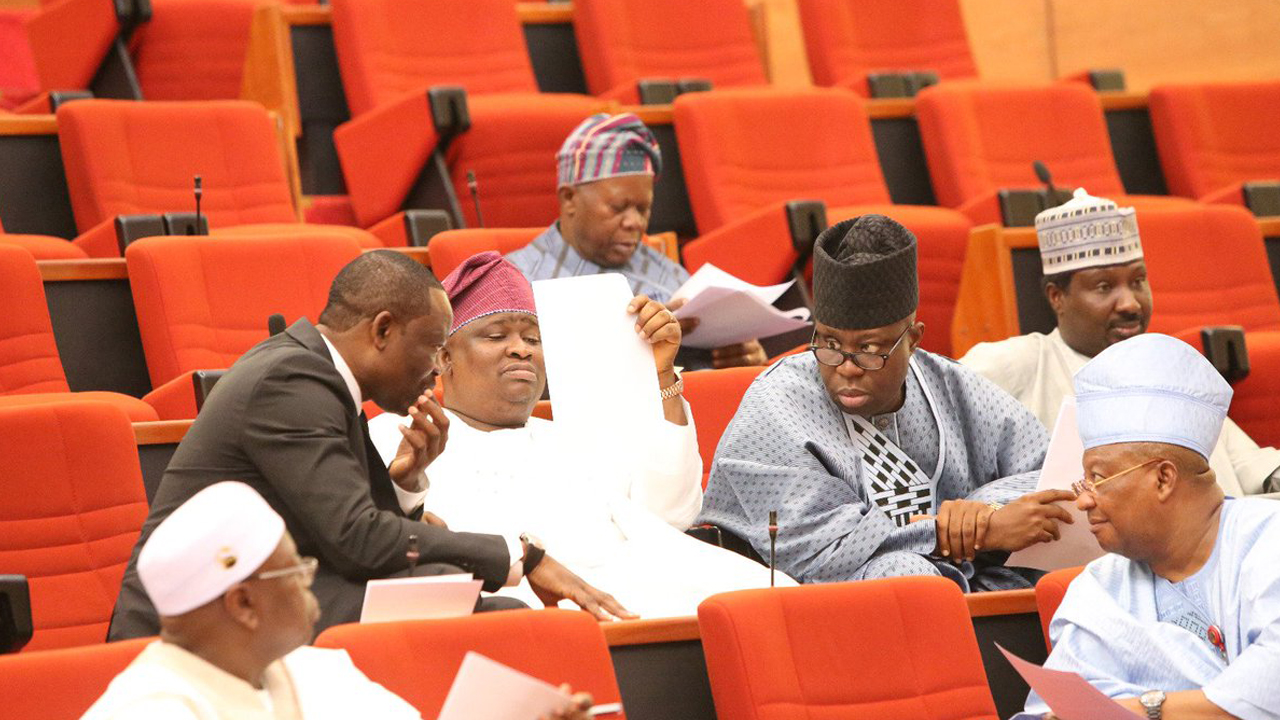
As part of efforts to reform the Nigerian tax system and make it more efficient, the Senate is working on a legislation that seeks to establish a Tax Research Fund.The fund is to provide for the financing of a Tax Study Group with a view to improving the link between policy objectives and the tax structure.
This is contained in the preliminary report of the Tax Reform Technical Committee set up by the Senate earlier to work out modalities for achieving a comprehensive tax reform for the country.
Membership of the committee is from the National Institute for Legislative and Democratic Studies (NILDS) and tax experts from revenue generating agencies.NILDS Director General, Professor Ladi Hamalai at the presentation of the report at the National Assembly lamented that the dearth of evidence-based studies for transforming policy objectives and guiding principles of tax structure has been a critical issue hampering successful tax reform in Nigeria.
According to her, “At a time when markets and the regulations that govern them are evolving at an unprecedented pace, we also need to overhaul, modernise and harmonise our tax laws in Nigeria.’’She listed some challenges facing the tax system in Nigeria which include” tax disincentive, multiplicity of taxes, Leakages and evasion; and limited efficiency of tax collecting agencies.’’
Other recommendations made by the technical committee include the processing of a bill to amend tax laws to provide for concurrent use of tax handle legislation to limit tax deductions exemptions; amendment of the 1999 Constitution to provide for taxing powers of each level of government as well as processing a bill to provide for a Unified Tax Code.
The committee also called for a legislation to provide for a single tax authority for the Federal Government, states and local councils; provide limitations to the powers of Ministries, Departments and Agencies (MDAs) to impose fees and charges, excluding fees and charges for goods and services as well as enactment to establish a tax court.
On the non-refund of excess tax due to weak mechanism for refunds, the report urged tax authorities to ensure timely payment of refunds, even as it called for the provision of tax refund in the budget.
The report highlighted strategies the Nigerian government could adopt to boost tax revenue to include: broadening of the tax base, institutional capacity building and improving the integrity of tax administration.The Federal Ministry of Finance is expected to work with tax agencies alongside the ministry of justice to come with various legislations and transmit same to the National Assembly for legislative action.
Chairman, Senate Committee on Finance, John Enoh, listed the challenges bedeviling tax administration in the country to include: dearth of evidence-based studies or analytical framework for transforming policy objectives and guiding principles to the tax structure; segmentation of the tax system; relatively static tax structure; multiplicity of taxes and multiplicity of deductions and exemptions.
According to him, “Nigeria is in dire need of a strong tax system that will serve as a catalyst for the mobilization of tax revenue, investment, the provision of public goods and services and the overall development of the country. At present, the tax system is apparently weak and unable to serve this purpose effectively and efficiently.’’The final report is expected to be submitted to the Senate President, Bukola Saraki, before the end of the year, for further legislative action.
[ad unit=2]



